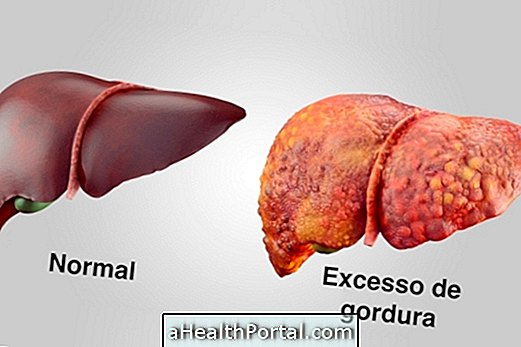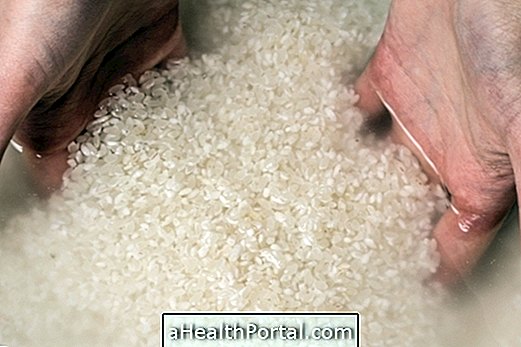Having a little brown discharge in pregnancy is common, not a big cause for concern, but you have to be careful because it can indicate infections, changes in pH or dilation of the cervix, for example.
Light discharge, in small quantity, and with gelatinous consistency is more common in early pregnancy, and less worrying, but very dark, strongly smelling discharge may indicate more severe changes. Find out what are the possible causes of discharge in pregnancy and when it can be serious.
In any case, the obstetrician should be informed and tests should be performed to identify what is causing this symptom and to start treatment as soon as possible.

Main causes of brown discharge in pregnancy
Small changes in the pH of the woman's genital region can cause brown discharge in small amount, not being a major cause for concern. In this case the discharge comes in small quantity and lasts for 2 to 3 days, disappearing naturally.
It is also common for a pregnant woman to notice a small brown discharge, which may contain a little blood, after doing some physical exertion such as going to the gym, climbing stairs with shopping bags, or doing intense domestic activities such as cleaning.
But if the dark discharge comes with bad smell, burning or itching in the vagina, this may indicate more serious changes, such as:
- Infections, since the pregnant woman is more likely to contract sexually transmitted diseases;
- Risk of miscarriage - know what can cause miscarriage;
- Ectopic pregnancy, which is characterized by severe abdominal pain and blood loss through the vagina. See what other symptoms of ectopic pregnancy are;
- Infection of the cervix.
Dark discharge in large numbers, associated with blood loss, increases the risk of complications such as premature delivery or rupture of the pouch. Therefore, it is important to go to the doctor whenever you present dark discharge, even in small amount so he can evaluate and perform ultrasound to see if everything is okay with the woman and the baby. Find out what tests are required in pregnancy.
When brown discharge in pregnancy is normal
Small brown hairs with a more watery or gelatinous consistency are common, especially in early gestation. It is also normal to have a little dark discharge after intercourse but if you have noticed that the discharge does not have these characteristics, you should seek medical help.
Other symptoms that should not be ignored are itching in the vagina, bad smell and the presence of cramps. These signs do not always indicate something serious but it is good to be cautious and to inform the doctor.
Dark brown discharge, such as coffee grounds, at the end of pregnancy may be a blood loss and should be reported immediately to the obstetrician. If it is a light brown discharge and abundant with a few strands of blood, it should not bring much concern as it may be the mucus plug indicating that the time of delivery is coming. See what causes brown discharge in pregnancy.
Treatment for brown discharge in pregnancy
Treatment can be done with the use of antifungal medicines when the cause is a candidiasis, for example, or antibiotics, in case of an STD. But when the discharge is unrelated to any disease, the treatment may be just to rest, avoiding efforts.
In any case, some care should be taken daily to avoid the occurrence of discharge, are:
- Avoid the use of soaps with moisturizing cream, antibacterial and antifungals;
- Use intimate soap as directed by the gynecologist;
- Intimate clothing should be light, loose and cotton;
- Avoid wearing softeners or bleach in underwear;
- Wash the lingerie with mild soap and water;
- Avoid the use of daily protectors;
- Avoid washing the genital area more than 2 times a day, as it can take the natural protection of the mucosa of that region.
These care can help prevent infections and thereby decrease the chances of discharge.
Can dark discharge be pregnancy?
Dark discharge may be pregnancy, but it does not always happen. This is because in some women, sometimes, a greater flow of blood arises before or on the last days of menstruation. In some cases, the flow may decrease in the last days of menstruation, causing the blood to become more concentrated and darker.
Check out the first 10 symptoms of pregnancy if you suspect you may be pregnant.
If menstruation is delayed, the onset of dark discharge may be a peeling of the endometrial tissue, which coats the uterus internally. Therefore, medical evaluation is essential for the necessary examinations to be performed, since not always delayed menstruation and dark discharge are signs of pregnancy.






















